home > insights > HOW F.W. BOREHAM DISCOVERED THE WAY TO OPEN THE GATES TO HUMAN HEARTS
HOW F.W. BOREHAM DISCOVERED THE WAY TO OPEN THE GATE TO HUMAN HEARTS
WHEN F.W. BOREHAM BECAME THE STORY-TELLING APOLOGIST
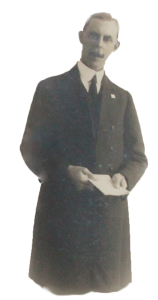
Before F.W. Boreham became Dr. F.W. Boreham, Public Theologian, he was a pastor who preached largely evangelistic messages. He entered his first pastorate at Mosgiel largely influenced by his benefactor, C.H. Spurgeon, and the various evangelistic preachers who came to London’s Metropolitan Tabernacle including D.L. Moody, A.T. Pierson, and A.G. Brown. He longed to see people come to Christ as a result of his preaching. In many respects, his time in New Zealand was a search for his ‘voice’. It was when he reached Hobart, that FWB researcher, Rev. David Enticott, states “Boreham found his voice.”
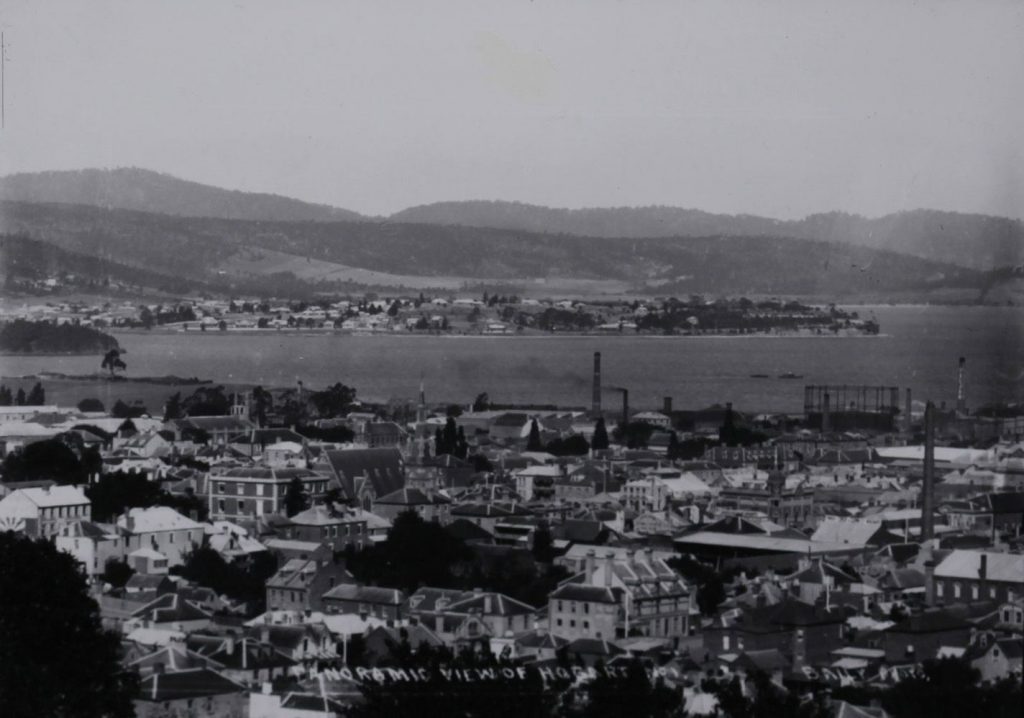 When the Borehams arrived in Hobart in 1906, they arrived in a major Australian city. Hobart is the second oldest city in Australia’s European settlement. It was a major port for English shipping and immigrants. It was a far cry from the rural landscape of Mosgiel and its one thousand residents. Mosgiel was largely a Scottish enclave who were mostly very devout church-goers. Hobart on the other hand was comprised of many people who were disaffected church-goers. The transportation of convicts from the over-crowded British prisons to the Penal-Colony of Tasmania, had only just ended a few decades earlier and these transported convicts were forced to attend church services under very oppressive conditions (standing in a confined cubicle where only the preacher was visible).
When the Borehams arrived in Hobart in 1906, they arrived in a major Australian city. Hobart is the second oldest city in Australia’s European settlement. It was a major port for English shipping and immigrants. It was a far cry from the rural landscape of Mosgiel and its one thousand residents. Mosgiel was largely a Scottish enclave who were mostly very devout church-goers. Hobart on the other hand was comprised of many people who were disaffected church-goers. The transportation of convicts from the over-crowded British prisons to the Penal-Colony of Tasmania, had only just ended a few decades earlier and these transported convicts were forced to attend church services under very oppressive conditions (standing in a confined cubicle where only the preacher was visible).
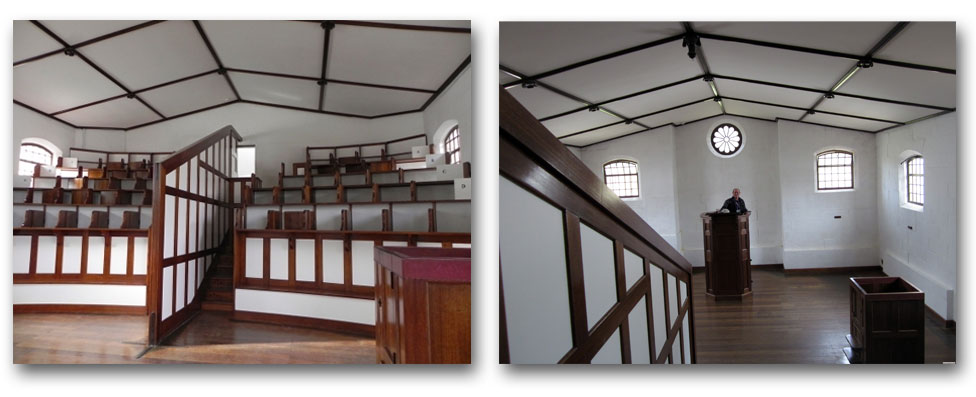
The Port Arthur Asylum Chapel where prisoners had to attend compulsory church services only being permitted to stand in a cubicle where only the preacher was visible to them. Convict transportation to Tasmania ended in 1853.
In an essay that Boreham penned around this time, he reflected on a friendship he had made with a Tasmanian, Mr. John Cranston. “I once invited him to church. He abruptly declined, and I fancied I detected a contemptuous curl on his lip. The churches, he said, were not practical enough for him. Religion was too other-worldly, too visionary, too nebulous. He thought that ministers should give up talking about some other world and do their best to patch up this one” (The Silver Shadow, 1918). It was meeting people such as Mr. Cranston that made Boreham realise that to reach people who were cynical about the God of the Bible, he needed to become more strategic in how he attempted to win them for Christ. This led to him attempting something rather radical.
In his essay, Lonesome Gate, FWB noted that even though most people who rejected Church and the God of the Bible claimed that they were atheists or even agnostics – this could hardly be truly the case! He cites Beaconsfield to make his point.‘My lord,’ said Beaconsfield, in addressing a famous gathering at Oxford ‘my lord, man is a being born to believe; and if no Church comes forward with its title-deeds of truth, sustained by the traditions of sacred ages, and by the convictions of countless generations, to guide him, he will find altars and idols in his own heart and in his own imagination.’ Man is a being born to believe! But for some men, the pathway to proper belief is obscured by a closed gate, Boreham wrote in this 1918 essay. This gate was once attached either side to fences which gave the gate its context. But if the underpinning of the Gospel is removed from society and all we have left is a gate unattached to any fence, this gate seems ridiculous. When the cynical man hears the claims of Gospel all he hears is of a lonesome gate in the middle of a field without any fences or real reason for being there.
“If, that is to say, the gate blocks his way, forbidding him to believe what he has been accustomed to believe, he will have his revenge by believing in spite of the gate; but he will believe something much less believable. He will not be obstructed or turned back; he will take to the grass.”
Gates, of course, are related to correct pathways. They are meant to be opened as well as closed. But if they only remain closed on the pathway to peace with God, it will lead mankind to stray from the correct path and, like a wandering sheep, stray into the grass of nonsense. This can happen to even the most intellectual of people who can fall prey to spiritual absurdities. Boreham refers to M. Maillet, a brilliant philosopher of his day, who, while acknowledging the truthfulness of the Bible, denied its most foundational claims.
“This Maillet was much too great a philosopher to credit the scriptural account of Noah’s flood; yet he could believe that the whole family of birds had existed at one time as fishes, which, on being thrown ashore by the waves, had got feathers by accident; and he could believe that men themselves are but the descendants of a tribe of sea monsters who, tiring of their proper element, crawled up the beach one sunny morning and, taking a fancy to the land, forgot to return!’ Maillet came to the gate, and his advance along the highway of faith was blocked; so he took to the grass. The faith lost him, it is true ; but the gate was cheated of its prey.”
Boreham realised that if he was going to reach these sophisticated Hobartians, he needed to open the gate, and re-erect some fences. This gave rise to his radical idea.
The heart of Boreham soon became evident to all. It wasn’t to become one of the world’s best preachers, neither was it to become one of the best selling religious writers in recent history – it was to win lost souls to their Saviour.
Many pastors would have been satisfied with the success that Boreham was now enjoying – a substantial church that was experiencing extraordinary growth, articles being published in Australia, New Zealand, England and the United States. But that first Winter in Hobart, FWB called the church officers together to discuss a growing problem.
Crago, The Story of F.W. Boreham, page 129
The ‘problem’, as Boreham saw it, was that the gate was still shut to most people in their city! He wanted to reach “the man in the street” with “reasoned statements of the Christian position”. To do this he proposed that this Winter they hire the Hobart Town Hall, which was three quarters of a mile from the church, for a series of outreach meetings which would commence immediately after their Sunday Night church service. These meetings were advertised as – THE DOUBTS OF THE AVERAGE MAN. This series included, What About The First Cause? Has Evolution Evicted God?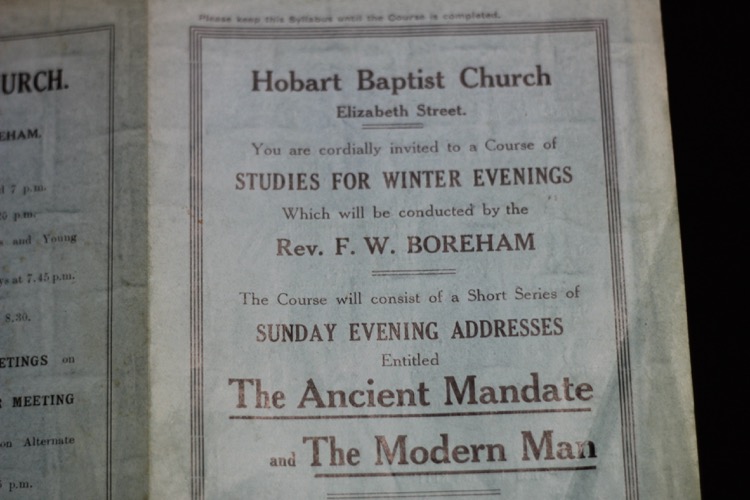 The result of this campaign was outstanding. Around 150 people were added to the Hobart Baptist Tabernacle that winter! It was followed up next winter with what might be seen as a ‘fence’ re-building when Boreham did an evening series of meetings explaining God’s Moral Law, entitled The Ancient Mandate and The Modern Man. Boreham’s voice had necessarily changed. Rather than just blunt evangelism, he was now far more apologetic (giving reasons for belief in the God of the Bible). But he also realised that leading lost lambs through a gate designed for their benefit also required attractiveness and winsomeness. Thus, his voice took on the tone of a story-teller.
The result of this campaign was outstanding. Around 150 people were added to the Hobart Baptist Tabernacle that winter! It was followed up next winter with what might be seen as a ‘fence’ re-building when Boreham did an evening series of meetings explaining God’s Moral Law, entitled The Ancient Mandate and The Modern Man. Boreham’s voice had necessarily changed. Rather than just blunt evangelism, he was now far more apologetic (giving reasons for belief in the God of the Bible). But he also realised that leading lost lambs through a gate designed for their benefit also required attractiveness and winsomeness. Thus, his voice took on the tone of a story-teller.
Boreham soon found that this new voice of his was also perfectly suited to the printed page. He became a weekly contributor to the Hobart Mercury, then later the Melbourne Age. After he moved to Melbourne in 1916, he found that his Melbourne audience was just as hard and cynical as his Hobart audience was – and that his apologetic voice from the pulpit and the pen was just as effective there too. The longest pulpit he enjoyed was that of Scots Church, inner Melbourne. He found that the very closed gates he had encountered in Hobart needed to be opened to his Melbourne weekly lunchtime audience of up to 1200 inner-city office workers as well.
Perhaps today, as we too in the West face the prospect of an increasingly hardened and cynical world might find that FWB’s apologetic strategy of opening the gate and re-erecting fences may just be the way for us also to reach our generation as Dr. Boreham was able to reach his!
Andrew Corbett
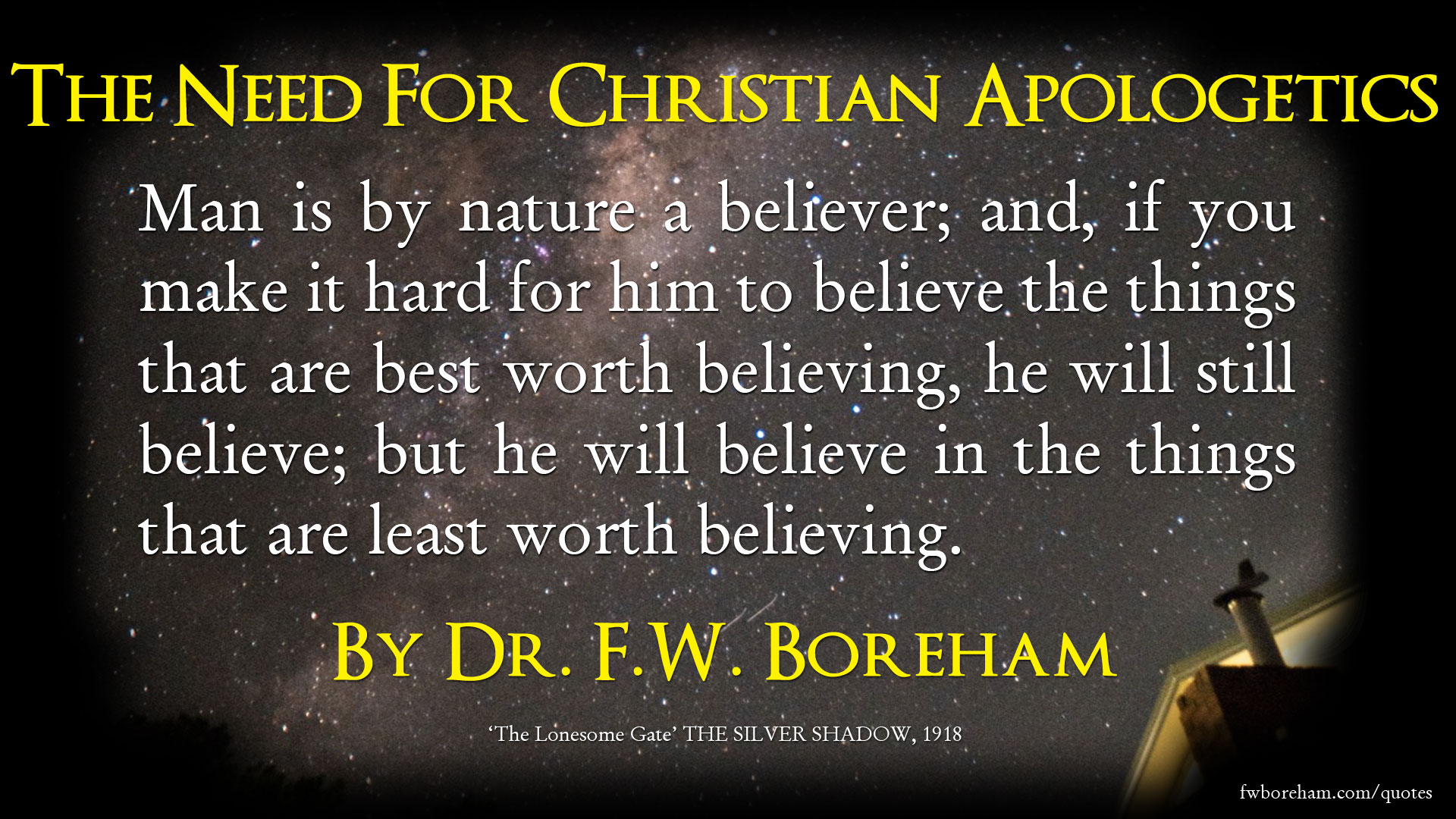


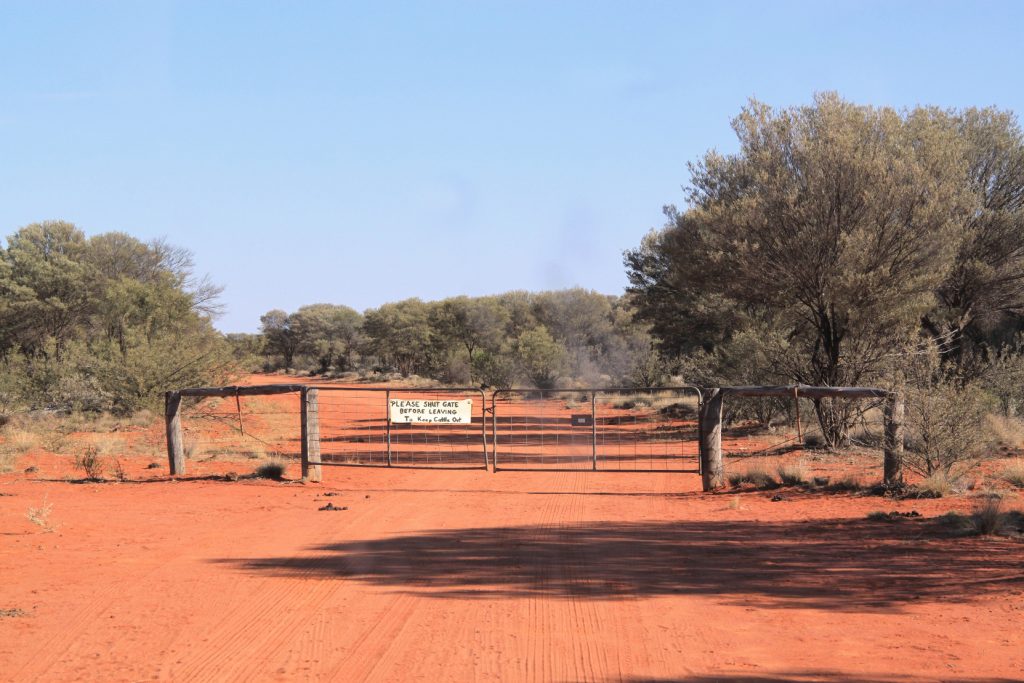
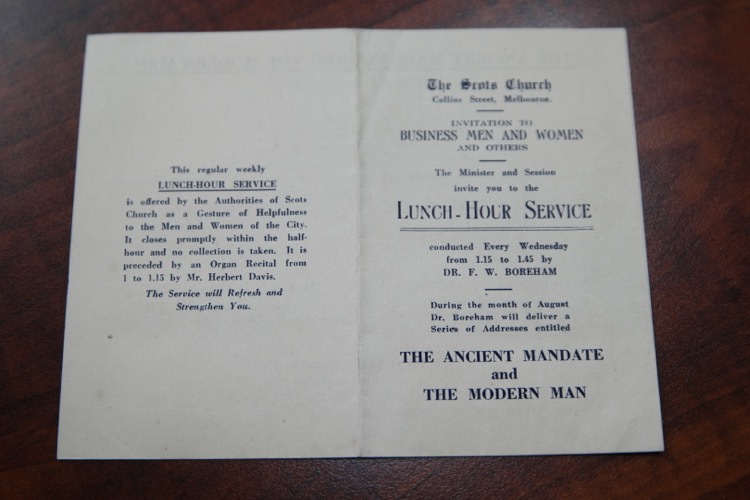















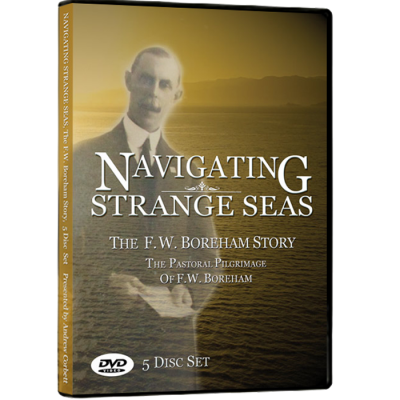
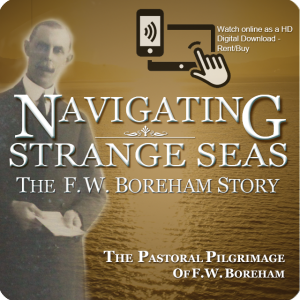
Thank you again for your work on FWB! He certainly inspires me yo keep on working here in Mosgiel. By the way…your lovely ‘gate’ photo is from the entrance to the Daydream Mine between Broken Hill and Silverton. Our dear friend who owned the mine and developed it as a tourist attraction ‘opened the gate’ of his heart to Jesus after many years of faithful witness by his wife, folk at our church and prayers! God bless
Roslyn King Principal. Amana Christian School, Mosgiel
Thanks Roslyn.